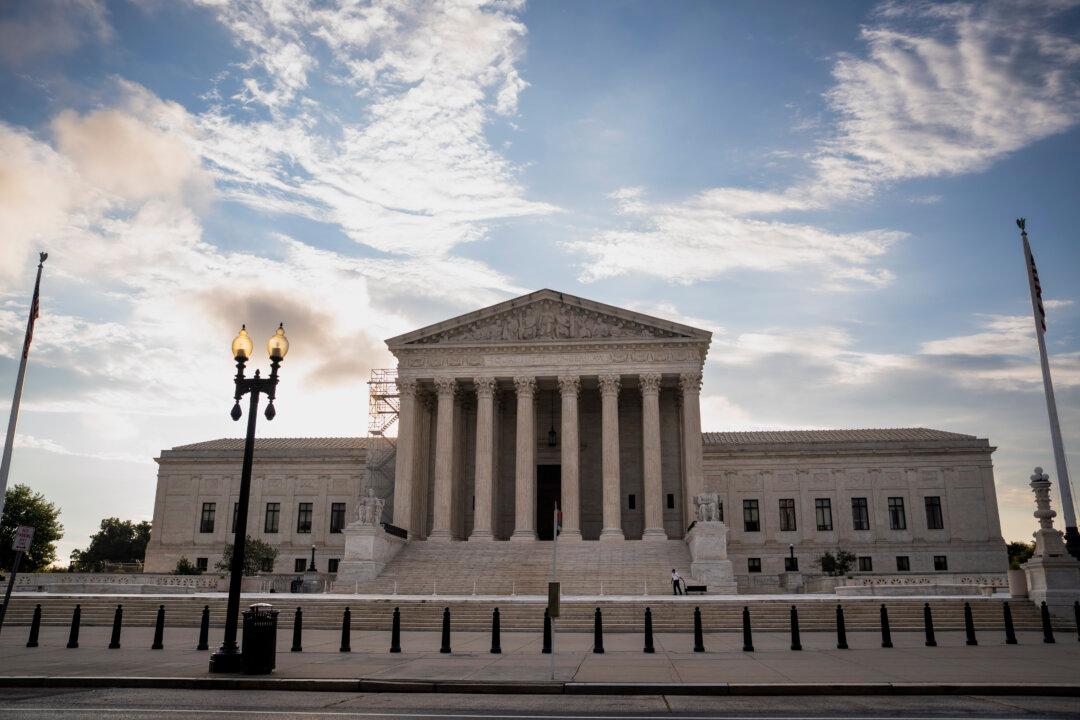The Department of Justice on Sept. 14 requested that the U.S. Supreme Court stay an appeals court injunction that limits the federal government’s communications with social media firms.
The DOJ asked (pdf) the justices to stay a lower court’s decision that found that federal officials had likely violated the free speech protections of the U.S. Constitution’s First Amendment by coercing social media platforms into censoring certain posts, including regarding the COVID-19 pandemic.





